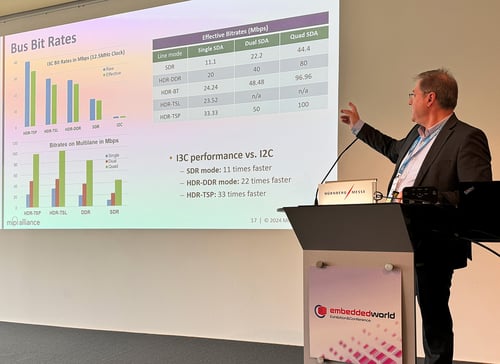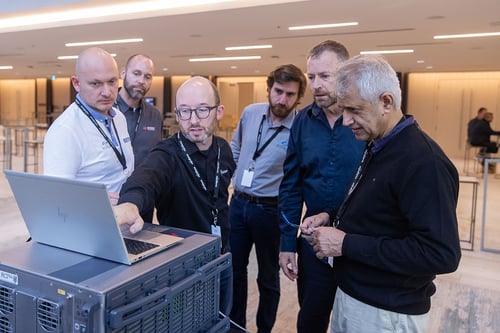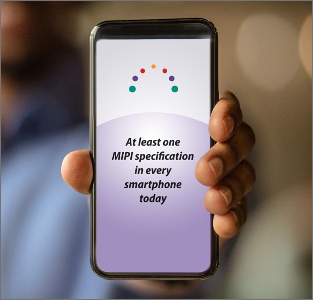Debug
Working Group

About the Group
Chair
Enrico Carrieri, Qualcomm Incorporated
Vice Chair
Jason Peck, NVIDIA
Participation
MIPI Alliance members at the Contributor level and above may participate by subscribing to the group on the member website.
Related Specifications:
MIPI Debug Over IP Sockets (DO-IPS)
MIPI Debug Over PCIe (DO-PCIe)
MIPI Debug Over UCIe (DO-UCIe) (in development)
MIPI Gigabit Debug for USB (GbD USB)
MIPI High-Speed Trace Interface (HTI)
MIPI Narrow Interface for Debug and Trace (NIDnT)
MIPI Parallel Trace Interface (PTI)
MIPI Security Specification for Debug
MIPI System Software Trace (SyS-T)
MIPI System Trace Protocol (STP)
MIPI Trace Wrapper Protocol (TWP)
For more information on Debug specifications, view the MIPI white paper, "Architecture Overview for Debug".
Details
Charter
The MIPI Debug Working Group, originally named the Debug & Test Working Group, began as an investigation group in 2003. In 2005 it was chartered to enable the best system debug support in all stages of device development to benefit manufacturers and users.
The group’s charter directs it to develop hardware and software interface and protocol specifications that are low-cost and interoperable, and interact with or support system debug procedures. The specifications leverage functional interfaces where possible to increase applicability of the tools in systems that are deployed in the field. The group works with other MIPI Alliance groups, as well as other industry organizations, as necessary to pursue its work.
Industry Need
MIPI Alliance formed the group in response to the industry’s dependence on non-standard, proprietary debug solutions that increased the complexity of the debug process, increased development costs, and delayed time to market for vendors. Prior to progressively developing Debug's layered series of specifications, the industry had also struggled with the following challenges:
- a need for interoperability between tooling and devices that are being debugged
- the increasing functional complexity of mobile and mobile-influenced devices
- the inability of available debug standards to address these issues
- the limited ability of many physical form factors to facilitate access to debug interfaces
- a lack of cost-effective dedicated debug/trace interfaces.
Accomplishments
The working group has developed its portfolio of solutions to facilitate robust debugging of form factor devices in the lab and again after they are connected directly via USB, or on a standard network via wired or wireless IP-based connections. The solutions can be used to debug, troubleshoot or fine-tune devices targeted to augmented reality/virtual reality, wearables, the industrial IoT, automotive infotainment and advanced driver assistance systems (ADAS), among others.
The group is very active, continually advancing its debug solutions. Recent activities include updates and new additions to the MIPI Debug Over family of specifications, which define how to transmit debug and trace data to and from a DTS on a functional network by defining the interface layer between the network adapter and the transport. The specifications can be used to debug components in any device that is "smart" or connected, and all of them are available for download and use by the public and the open source community.
Focus
The MIPI Debug Working Group addresses debug challenges for both mobile devices and mobile-influenced devices. It aims to define and unify debug solutions for mating connections, pin assignment, and electrical characteristics; reuse debug functional interfaces and protocols; and develop debug/trace protocols and associated software layers for highly integrated systems that are deployed in the field. It supports legacy interfaces and protocols wherever possible.
For more information, view the MIPI white paper, "Architecture Overview for Debug" and supporting document, "MIPI Debug & Trace Connector Recommendations."






